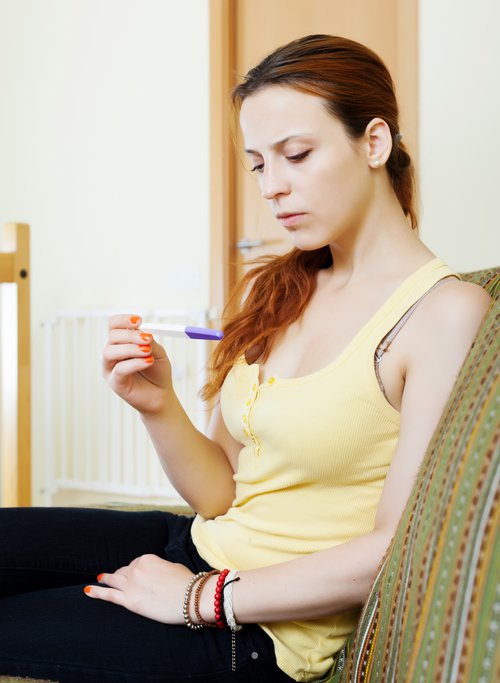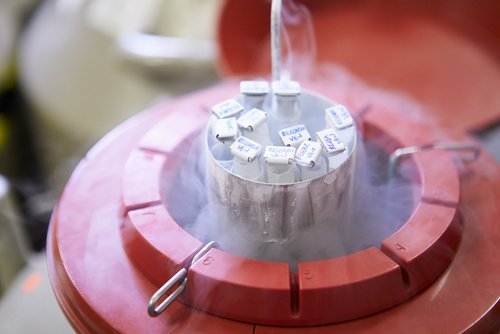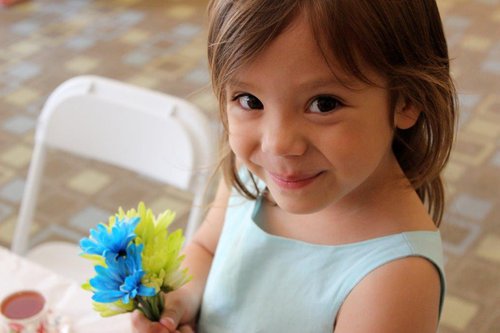Health and Pregnancy After 35: Frequently Asked Questions and Information

Have you noticed that it sometimes seems impossible to have it all – the job, the relationship, the family?
Modern day women are highly ambitious. We seek higher education, job promotions, and the perfect partner. With these goals taking the forefront of our minds, deciding to have babies is often put on the back burner.
When we finally determine the time is right to start a family, many of us find it difficult to conceive. One in eight couples will experience infertility and face the challenge of having a baby.
However, it is still possible to have a healthy pregnancy, despite our advancing age.
Today’s Women: Why We’re Having Babies Later than Ever Before

There are a million reasons why women put off having children until later in life. In fact, studies show that the average age of first-time mothers is getting older all the time.
Nowadays, getting pregnant after 35 is not an unusual occurrence - but why are we waiting so long?
For a lot of us, the decision to prolong having children is career-driven. We want the opportunity to experience professional growth and set ourselves up financially before we start thinking about bringing a new baby into the world.
Other women want certain life experiences first. Maybe they’d like to travel the world or buy a home. Or, maybe they just haven’t found Mr. or Miss Right quite yet.
But these aren’t the only explanations.
Some women will reach their 35th birthday without children, but not by choice. Perhaps they’ve dealt with pregnancy loss or are struggling with health issues like PCOS or Endometriosis that make conceiving a child incredibly difficult.
Whatever your reason for exploring older pregnancy, it’s essential to understand the trials and tribulations that can come with having a baby in your late 30s.
Getting pregnant at 38, for example, may not be an impossibility, but what could be the cost of delaying conception?
Stability vs Youth: Pros and Cons of Later-Age Pregnancy
Choosing to have babies after 35 is not a doomed event.
All around us, women are starting families later, and in many cases, these pregnancies are complication-free.
Compared to young moms that are fresh into their 20s, women in their 30s have an increased amount of wisdom that can be of great benefit to their children. They’ve also had the time to develop better financial stability and have had the experiences necessary to cultivate a better sense-of-self.
You may be wondering, though… what are the disadvantages?
Along with the fact that older age seems to take a direct hit on our energy reserves, the primary late 30s pregnancy risks revolve around the fact that a woman’s egg quality and the number available has depleted quite a bit by this time.
While each woman was born with around one to two million eggs, this number greatly decreases each month that goes by. By the time they’ve hit 30, the number of eggs they have available has dwindled down to approximately 12% of what they started with.
However, even with this loss of eggs, each woman has more than she needs; the real issue is her eggs have aged, and they are no longer as supple and potent as the eggs she had in her 20s.
Diminished egg quality also increases the odds of experiencing pregnancy complications after 35 and makes conceiving naturally a more difficult option.
Is 35+ Too Old to Have a Baby?

Make no mistake about it – getting pregnant after 35 is entirely possible.
Each day a woman in her late 30s will take a pregnancy test that reveals the glorious plus sign so many of us have been hoping for.
But consider this for a moment:
What will that woman’s pregnancy look like?
What complications might she have to deal with?
What are the risks to the unborn baby of a mother with advanced maternal age?
While studies have shown that a woman in her late 30s only has a 25% chance of conceiving each cycle, it’s vital to understand the difficulties that can arise if you do in fact find yourself naturally pregnant.
Here are some of the major concerns for a mature woman and her baby after 35:
• Premature Birth
• Low Birth Weight
• Greater Risk of Gestational Diabetes
• Miscarriage or Stillbirth
• Birth Defects
• Higher Chance of C-Section
While there are steps you can take to help prevent these things, such as regularly taking pre-natal vitamins and never missing doctor’s appointments, you have to decide if you’re prepared for increased risks when conceiving naturally.
And what if your exploration of this subject is merely informational, and you’re still not quite ready to have a baby?
The older you get; the more difficult conception will be.
Have you considered a proactive safety net like egg freezing?
Egg Freezing for Future Use: Is it Still an Option?

So, you’ve reached your early to mid-thirties and still aren’t quite ready for a baby.
Perhaps you’ve set certain career goals for yourself that you would still like to meet? Or maybe you’ve had an unfortunate cancer diagnosis and are preparing to undergo treatments that may be taxing on your body?
Whatever the reason for putting off having children, it’s important to consider whether you would still like to have them in the future. If the answer is yes – now is the time to take preemptive action. Experts agree that a woman’s fertility begins to significantly decline around age 34 and can be nearly non-existent as she enters her early 40s.
One way to help yourself have a healthy pregnancy in your late 30s is to use your own previously frozen eggs.
But what does that mean?
Modern technology allows for a woman to undergo treatments in which her eggs are collected and flash frozen to await future use.
Before the eggs are collected, she undergoes fertility testing to ensure she is a good candidate. These screenings help determine the current quality of your eggs and ensure they are viable for freezing.
After collection, a freezing technique known as vitrification helps maintain the quality of these eggs and prevents ice crystal formation. It is important to note that it typically takes much more than one egg to achieve a pregnancy, and may take a couple of egg retrievals to yield enough eggs for a chance at future pregnancy.
Banking your eggs for future use is a possible solution for women that aren’t quite ready to build their family. In fact, many large corporations, such as Apple and Facebook, are now offering to cover the egg banking expenses for their employees.
How Can Assisted Reproductive Technology Help?
While natural conception is the ideal solution for most couples, it truly may not be possible for some. Assisted Reproductive Technologies offer these women a chance at conception.
Treatments such as Intra-uterine insemination (IUI) and In-Vitro Fertilization (IVF) can increase the chances of pregnancy as long as the sperm and eggs used are still viable. However, as we age, we lose the ability to produce chromosomally normal eggs. Many women in their late 30s and 40s require donor egg IVF in order to conceive.
The Waning Taboo of Egg Donation
Do you have concerns about using donor eggs?
You wouldn’t be alone if you did. Many women fear a sense of shame or embarrassment over choosing donor egg IVF. While the loss of a genetic connection is something many women initially mourn, mothers report that this diminishes when actively engaged in parenting their children. Being able to carry the pregnancy, nurturing your child even before it is born, is one of the benefits of donor egg IVF.
The stigma behind using donor egg IVF has greatly lessened as well. For years, using an egg donor was something most couples hid from others. This, however, has changed as more and more families turn to this treatment option and proudly proclaim that their beautiful, vibrant family was due, in part, to the generous gift of an egg donor. While the choice to announce your own donor egg usage is still entirely your own, it is no longer a taboo topic.
Success with Donor Egg IVF

Most couples don’t start off planning on needing donor egg IVF.
In almost every situation, a couple assumes things will work out the old-fashioned way and within a few months, they’ll be on the nine-month journey to their first child.
But what if that’s not the case?
Maybe you’ve been trying for a year, two years, even three years and haven’t had any luck.
That was, in fact, the start of the journey that led sweet Evelina’s parents down the frozen donor egg path.
In spite of years of struggling to conceive naturally and attempting to ignore the insistent tick of their biological clock, frozen donor eggs were the answer this lovely couple had been hoping for. Through donated eggs, these two people became something extraordinary – a family.
Despite your advancing age, know that your journey is not finished.
There are many possibilities to help you become the mother you’ve always dreamed of, no matter how many candles are on your birthday cake.
Do you need more information about pregnancy past 35?
Read our posts Pregnancy at 40+: Likelihood, Risks, and Success Facts and Older Pregnancy: Is It Possible to Have a Child in Later Years? to learn more.
Categories
Latest Posts
- Pride, Parenthood and Possibility: A Guide for Gay Dads Using Frozen Donor Egg
- Victoria’s Story: Choosing Donor Egg and Beyond
- Heartbreak, jealousy, and then one ‘golden egg’. How actress Camille Guaty finally became a mom with donor egg
- Empowering Your Family Dreams: Accessing Fertility Coverage Made Simple
- Donor Egg Bank USA’s Partner Summit 2024
- Planning, Painting and Picking: A Donor Egg Bank USA Employee’s Journey to Motherhood
- Real Stories: A Path to Parenthood Through Donor Eggs
- Mental Health and Infertility 101: What You Should Know
- Mark Yourself as a Resource During National Infertility Week®
- 5 Reasons It’s Not Your Fault You’re Not Pregnant
Comments
Share Your Thoughts